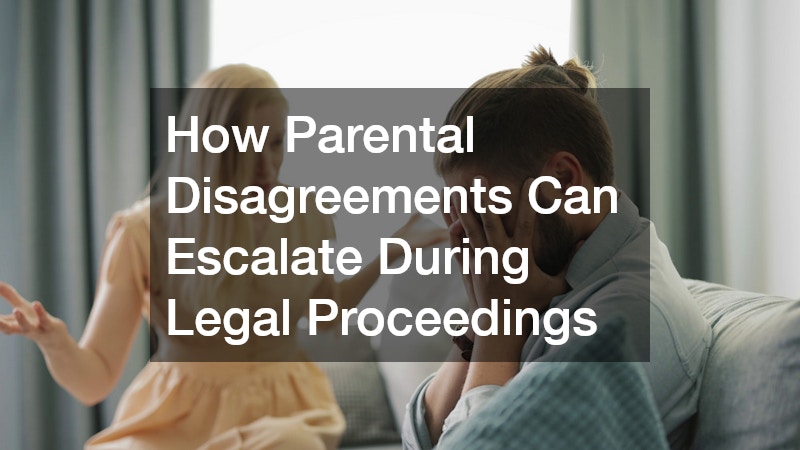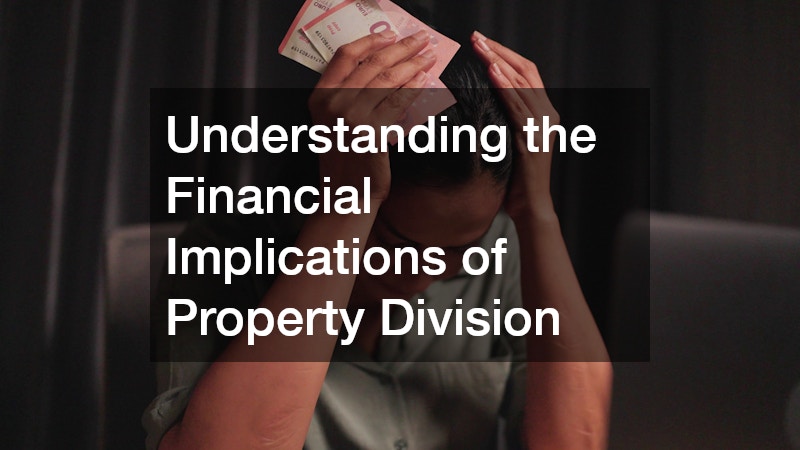The dissolution of a marriage can be a tumultuous and emotionally charged process, especially when children are involved. A divorce battle can easily escalate as parents navigate the stress and complexities of legal proceedings, often driving a wedge deeper into an already fractured relationship. This process can vary greatly depending on the specifics of each case, but certain commonalities exist when it comes to disagreements over child custody and the contentious battles that often ensue. Parental disagreements are particularly prevalent during legal proceedings because the stakes, often involving children’s futures, are incredibly high. Moreover, the involvement of a child custody lawyer tends to highlight and sometimes exacerbate existing conflicts as each party vies for their ideal outcome. These disagreements can become particularly heated over child custody issues. The challenges can stem from differing parental philosophies or even simple misunderstandings that snowball under pressure. A child custody lawyer can both mediate and magnify these issues, depending on how they guide their clients. The path each parent takes during a divorce battle is significantly affected by their legal representation. Not all battles necessitate an acrimonious fight, but when a child’s welfare is at stake, parents often become entrenched in their positions, driving up tensions and complicating legal negotiations. As the divorce progresses, the emotional toll can become overwhelming. Judges and mediators often encourage parents to find common ground to avoid long, drawn-out court battles. This is where outside resources, such as divorce services, can provide guidance and support. Understanding that a custody lawyer is there to guide the parents through the legal framework, not to deepen their personal rift, can help maintain a sense of perspective. In this way, parents can aim for an amicable resolution, focusing on their love for their children rather than their disagreements with each other.
- How Parental Disagreements Can Escalate During Legal Proceedings
- Why Children’s Schedules Often Become Points of Contention
- Managing Childcare Disputes When Tensions Run High
- When Education Becomes a Battlefield in Divorce
- Practical Steps for Coping With a Contentious Separation
- The Role of Financial Disputes in Prolonged Custody Fights
- What to Look for When Seeking Help Through a Complex Split
- Choosing the Right Representation in a Fierce Legal Battle
- How Legal Strategy Shapes Custody Outcomes
- Understanding the Financial Implications of Property Division
How Parental Disagreements Can Escalate During Legal Proceedings

Legal proceedings can significantly amplify stress and tension between divorcing parents. When initially amicable discussions turn into a full-blown divorce battle, past grievances resurface and can lead to escalated disagreements. Under the spotlight of the courtroom, parents may feel pressured to assert their stance vigorously, sometimes ignoring the underlying necessity to collaborate for their child’s well-being.
Engaging a child custody lawyer becomes essential at this stage. While these professionals are there to protect the interests of their clients, their involvement often signals a more serious contention where parents feel they must engage defensively. The presence of legal counsel can make negotiations feel adversarial, prompting a reactionary response from the involved parties.
The adversarial nature of divorce litigation can inadvertently harm parental relationships. Communication typically deteriorates, with each party retreating to guidance from their respective lawyers instead of seeking direct dialogue. This can add layers of complexity to an already challenging situation, sometimes resulting in extended courtroom battles and increased emotional strain on all parties, particularly the children involved.
Why Children’s Schedules Often Become Points of Contention
As divorce proceedings unfold, one frequent point of contention is the children’s schedules. Parents who once cooperatively managed calendars may find themselves hurdling disagreements over extracurricular activities and time allocations. What seems like a simple logistical task often becomes a battleground for control and influence over the children’s lifestyle.
Extracurricular activities, in particular, can be a significant point of negotiation. While one parent may value a full schedule of activities that promote development, the other may prioritize unstructured family time. These differing parental philosophies can create tension and resentment, making it difficult to settle on a cooperative schedule.
This contention can intensify as each party vies for the role of the ‘better parent,’ often believing they know what’s best for their children. These disagreements require tactful negotiation and sometimes court intervention to resolve. Mediation services can play a crucial role here, helping parents find a middle ground that honors both their wishes and the best interests of their children.
Managing Childcare Disputes When Tensions Run High
Disputes over childcare can be equally fraught with tension in a divorce conflict as parents navigate disagreements on daycare arrangements. As the pressure of divorce increases, seemingly simple decisions become contentious issues that require complex negotiation. The division of responsibilities and time with the children often feeds into broader custody battles.
Daycare choices reflect deeper disagreements over the upbringing and daily care of children. The decision on who selects and pays for daycare services can invoke questions of control, creating friction between parents. Both want reassurance that their children will receive the highest standard of care, often leading to disputes as to which facility can best provide that level of attention.
When tensions are high, objective guidance from a neutral party, such as a mediator or custody lawyer, can help ease the process. With professional assistance, parents can work through their differences without allowing the divorce conflict to overshadow optimal childcare arrangements. This is just one example of how emphatic, objective support can streamline decision-making during intense disagreements.
When Education Becomes a Battlefield in Divorce

Education choices can widen rifts between parents embroiled in a divorce conflict. Decisions around schooling, particularly when private school options are on the table, can become massively contentious. Parents may have differing opinions on whether a private institution offers better opportunities or if public schooling builds better community ties.
The choice of a private school can add financial strain, which further complicates divorce proceedings. Since such a decision often involves a considerable financial commitment, disagreements can become heated. This can also impact discussions around child support, adding a layer of complexity to financial settlements moderated by child support attorneys.
It’s crucial to resolve these disputes with a focus on the children’s best educational interests. Legal representatives and divorce services often facilitate amicable resolutions, helping parents find common ground for the benefit of their children. Mediation can serve as a constructive platform to voice concerns and help parents navigate the sensitive terrain of educational choices.
Practical Steps for Coping With a Contentious Separation
Navigating a contentious separation requires strategic thinking and emotional fortitude. It is essential to adopt pragmatic approaches and seek divorce advice to guide parents through difficult moments. Expert advice, when heeded, can offer support pathways that defuse tensions before they reach a boiling point.
One key piece of divorce advice is to avoid letting emotions dictate actions. Engaging with divorce services, including counseling and mediation, can provide both clarity and strategies needed to manage disagreements constructively. Recognizing emotional triggers and taking steps to address them can prevent escalation and facilitate smoother negotiations.
Another practical step involves open communication channels, where possible, between the parties. Transparency in discussions, involvement of supportive legal guidance, and focus on common goals—primarily the children’s well-being—can lead to more straightforward resolutions. It instills a sense of cooperation, vital for managing conflicts despite the acrimony of a divorce battle.
The Role of Financial Disputes in Prolonged Custody Fights
Financial disputes are a primary source of prolonged custody battles, intertwining economic outcomes with parental responsibilities. A divorce battle often extends into this realm as couples grapple over child support and other financial obligations. When financial disagreements coincide with custody debates, tensions can reach new heights, impacting the duration and difficulty of the proceedings.
Engaging with child support attorneys becomes necessary when these disputes arise. Their role is to ensure fair and equitable resolutions, addressing concerns over parental financial responsibilities. Financial matters are often sensitive and complex, adding another layer of tension during divorce negotiations.
It’s crucial to approach these disputes with an emphasis on creating solutions that prioritize children’s needs. With tactful negotiation and the support of knowledgeable professionals, parents can overcome financial stalemates. This ensures that financial disagreements do not overshadow the primary goal of effective co-parenting post-divorce.
What to Look for When Seeking Help Through a Complex Split

Choosing the right resources to navigate a complicated divorce battle is essential for achieving optimal outcomes. Divorce services can offer critical support tailored to individual situations, providing guidance through otherwise overwhelming processes. From legal assistance to emotional support, these services offer a holistic approach to managing divorce intricacies.
When seeking help, consider services that provide comprehensive support, encompassing legal advice, mediation, and counseling. Divorce services that offer financial planning consultation can also be immensely beneficial. Selecting a service with a proven track record and client testimonials can provide additional confidence during such a tumultuous period.
It’s important to evaluate the service’s capacity to address specific needs efficiently. A well-structured support system can lessen the strain of a divorce battle, ensuring that parents transition smoothly into life’s next phases. Choosing wisely empowers parents to resolve issues amicably, reducing the emotional burden on themselves and their children.
Choosing the Right Representation in a Fierce Legal Battle
Selecting the best divorce law firm can make a significant difference in the outcome of a contentious legal battle. The expertise and empathy they offer can shape the entire direction of the divorce process. A competent firm will not only have strong litigation capabilities but also possess an understanding of family dynamics, providing a balanced approach to negotiations.
When choosing representation, look for experience with complex divorce cases. Evaluating a firm’s reputation in handling custody negotiations is critical. Their ability to mediate, alongside their legal acumen, can be crucial in steering the divorce process toward a favorable settlement for all parties involved.
The best divorce law firm will prioritize the well-being of any children involved and work diligently toward resolutions that serve long-term interests. Taking time to strategically choose legal representation could prevent the divorce battle from spiraling out of control, guiding parents through the complexities and challenges of separation with clarity and confidence.
How Legal Strategy Shapes Custody Outcomes
Legal strategy plays a pivotal role in determining custody outcomes in a divorce battle. The approach adopted by your custody lawyer can significantly impact the process, influencing negotiations and potentially altering custody plans. Effective strategy requires an understanding of legal precedents and the current family dynamics at play.
A tailored legal strategy will take into account both parties’ strengths and weaknesses. It considers potential battlegrounds and delineates a coherent approach to resolving disputes. An experienced custody lawyer can guide decisions toward outcomes that account for the children’s best interests, reducing conflict intensity.
The right strategy can transform a hostile divorce battle into a manageable negotiation process. A well-thought-out plan that combines legal know-how with compassion can ensure a smoother transition for all involved, ultimately leading to more sustainable and mutually beneficial custody arrangements.
Understanding the Financial Implications of Property Division

Property division during a divorce involves several financial implications that may exacerbate tensions. As assets and mortgage loans are divided, disagreements can arise over fair distribution. These financial negotiations are often just as emotionally charged as custody battles, requiring careful attention and skilled negotiations.
Divorce proceedings often highlight the complexities of joint ownership and financial responsibilities. Whether dealing with sizeable investments or mortgage loans, both parties must brace for detailed discussions. Poorly handled property negotiations could result in lasting financial strain, impacting post-divorce life significantly.
Understanding the financial ramifications is crucial to navigating these negotiations effectively. Professional financial advisors can offer valuable guidance throughout this process. A strategic, balanced approach to property and asset division can mitigate conflicts and lay the groundwork for stable financial futures.
The journey through divorce is fraught with challenges and emotional upheaval. Yet, by emphasizing practical strategies and utilizing professional guidance, it is possible to navigate these complexities with composure and clarity. The divorce battle need not be a destructive force; with informed choices and wise counsel, parents can emerge with a stronger sense of stability and purpose, ready to embark on a new chapter of their lives. Prioritizing the well-being of children, maintaining respectful communication, and relying on trusted experts—such as child custody lawyers, financial advisors, and support professionals—can dramatically reduce conflict. In doing so, families can rebuild with resilience, dignity, and hope for the future. Reframing divorce as a transition rather than an end can empower individuals to focus on growth, healing, and opportunity. By remaining committed to fairness and long-term outcomes, former partners can create co-parenting structures that foster emotional health and continuity for their children. It is possible to close one chapter with grace while laying the foundation for a future grounded in cooperation and renewed personal strength.

